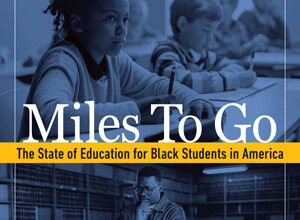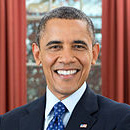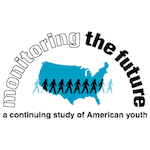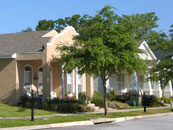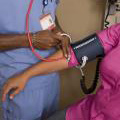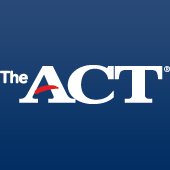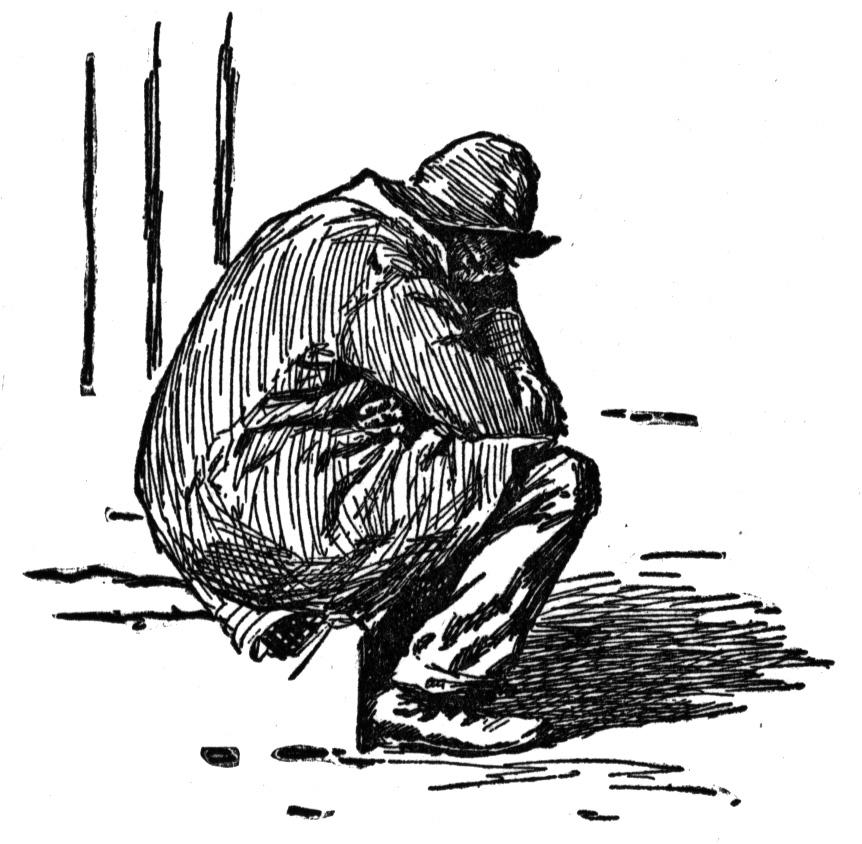University of Utah Project to Provide Prenatal Care to African Refugees
Aster Tecle, an assistant professor of social work, will co-lead The Perinatal Community Health Workers to Support African Refugee Women and Families that will train other African women to provide appropriate information, assistance, and prenatal care.
Black Degree Attainments in Engineering: Long Way to Go to Reach Parity
In 2005, Black earned 5.3 percent of all bachelor's degree awarded in engineering. In 2012, Blacks earned only 4.2 percent of all bachelor's degrees awarded in the discipline. Blacks did slightly better in graduate degrees in engineering.
Ten Universities to Tackle the Problem of K-12 Teacher Diversity
The American Association of Colleges for Teacher Education has selected 10 universities to participate in a program with the goal of increasing the number of Black and other minority men who teach in the nation's public schools. Only 2 percent of public school teachers are Black males.
A Call to President Obama to Include Girls of Color in “My Brother’s Keeper”...
In an open letter to President Obama, a group of 1,000 women of color state that "the crisis facing young boys of color should not come at the expense of girls who live in the same households, suffer in the same schools, and endure the same struggles."
Two Scholars Take on the Mismatch Theory
A new study refutes the theory that affirmative action is responsible for lowering graduation rates and post-graduation success for Black students admitted to universities with race-sensitive admissions policies.
Racial Disparity in Misdiagnoses of Stroke Patients
A new study finds that emergency room physicians tended to misdiagnose stroke symptoms among African American patients more often than for White patients.
Will the Federal Government Challenge Merit-Based College Scholarship Programs?
Many scholarship programs nationwide have minimum test score requirements that, while not discriminatory on their face, have the effect of disproportionately excluding large percentages of Black and other minority students.
Racial Differences in Higher Education Spending Have Little to Do With Race
In comparing Black and White families of similar income, wealth, educational background etc., the Bureau of Labor Statistics found there were almost no differences in the amounts spent on higher education.
The Growing Racial Gap in Home Ownership
Many American families use the equity in their home to finance the higher education of their children or grandchildren. This source of higher education funding is less available to African Americans.
The Large Racial Gap in Advanced Placement Examination Scores
Participation of African American students in Advanced Placement programs at U.S. high schools has soared in recent years. But a huge racial gap persists in performance on AP examinations.
An Examination of Faculty Diversity at the University of Houston
The University of Houston has one of the more diverse student bodies of any college or university in the nation. But, the racial and ethnic makeup of its faculty does not approach that of its student body.
Racial Differences in Union Membership and Wages
In 2013, there were 2,081,000 African American union members, some 13.6 percent of all African American workers. For union members, Blacks earned 80.9 percent of the wages earned by Whites.
Tracking the Educational Progress of 21st-Century African American Students
Some 19.8 percent of the African American high school sophomores in 2002 had gone on to earn at least a bachelor's degree over the next decade. This is less than half the rate for Whites.
Unemployment Rate Drops, But the Racial Gap Persists
In December, 11.9 percent of African Americans were unemployed. This is double the White rate of 5.9 percent. This 2-to-1 Black unemployment rate compared to the rate for Whites has been constant for many decades.
The Digitial Divide Has Nothing to Do With Race
A new study published by the Pew Research Center finds that the much publicized "digital divide" between Blacks and Whites is mostly due to economic factors rather than race.
The Racial Gap in College Graduation Rates
At publicly operated colleges and universities, 39.7 percent of Blacks earned their bachelor's degrees within six years from the same institution at which they enrolled in 2006 compared to 60.2 percent of Whites.
Racial Differences in Educational Debt Levels for Doctoral Students
Blacks who earned doctorates in 2012 had an average of $54,132 in debt from educational loans. Whites who earned doctorates had average educational debts of $25,992.
Study Finds Racial Differences in Womens’ Ability to Lose Weight
Due to lower metabolic rates, African American women who are overweight and are trying to lose weight must consumer fewer calories or exercise more than White women to lose the same amount weight.
The Racial Gap in Teenage Smoking Rates Has Declined But Blacks Still Smoke Less
In 2013, only 9.6 percent of African Americans in 12th grade reported smoking cigarettes in the 30 days prior to the survey compared to 19.4 of White high schools seniors.
Racial Differences in Time Span to Earn a Doctoral Degree
For African Americans who earned doctoral degrees in 2012, the average number of years that they spent from the time they graduated from college to the time they earned their doctorate was 11.9 years. For Whites the figure is 9 years.
More Than 5 Million Living African Americans Now Hold a Four-Year College Degree
Some 21.2 percent of the African American population over 25 years now has at least a bachelor's degree. For Whites the comparable figures is 34.5 percent.
Study Finds Racial Disparity in Prices Paid for Similar Homes
In comparing transactions for similar homes in the same neighborhoods, the data shows that Blacks spent between 3 percent and 4 percent more than Whites.
The University of Pennsylvania’s Major Effort to Boost Faculty Diversity
Since the year 2000, the percentage of all faculty at Penn who were racial or ethnic minorities increased from 12.8 percent to 20.5 percent. But President Amy Gutmann says, "We still have more work to do."
No Progress in Closing the Racial Gap in Doctoral Degrees
In 2012, African Americans earned 2,079 doctoral degrees. This was 6.3 percent of all doctoral degrees awarded to U.S. citizens and permanent residents. In 2002, African Americans also earned 6.3 percent of all doctoral degrees.
Making Racial Health Disparities an Issue of Social Justice
The Social Equity Leadership Mobilization Alliance is a consortium established to mobilize the next generation of leaders in the public health field. Harvard, Brown, and Morehouse are members of the alliance.
The Persisting Racial Gap in College Student Graduation Rates
In 2013 the graduation rate for Black students at the nation's largest universities that participate in the National Collegiate Athletic Association's Division I is 44 percent. This is 22 percentage points below the rate for Whites.
How the Ban on Race-Sensitive Admissions Impacts Black Enrollments at the University of Michigan
In order for racial parity to prevail in Michigan, the number of Black students in the entering class at the University of Michigan would have to nearly triple.
University Project Aims to Restore Minorities’ Trust in Medical Research
A new project at the University of Maryland, entitled Building Trust Between Minorities and Researchers, offers information targeted at minorities about participation in research and clinical trials.
Checking Up on Black Enrollments at Louisiana State University
Blacks are 32.4 percent of the Louisiana population so the Black undergraduate student population of 11.1 percent at Louisiana State University is about one third the percentage of Blacks in the state's population.
A Small Decrease This Year, But the Racial Gap in SAT Scores Remains Huge
The mean score for Blacks on the combined critical reading and mathematical portions of the SAT was 860. This was a four-point increase from a year ago. But the mean score for Whites on these sections was 201 points higher.
The Huge Racial Gap in College Readiness
Only 5 percent of all African American ACT test takers showed that they were "college ready" in all four subject areas of English, reading, mathematics, and science. For Whites, one third of all students were deemed college ready in all four subject areas.
University of Missouri Reports the Most Diverse Student Body in Its History
There are 2,415 African American students on the Columbia campus this semester. They make up 7.1 percent of all students. It must be noted that much more needs to be done. Blacks make up about 12 percent of the college-age population in Missouri.
New Data on the Racial Gap in Public School Teachers and Principals
African Americans make up 16 percent of all enrollments in the nation's public schools. But Blacks are only 10.1 percent of all teachers and 6.8 percent of all public school principals.
University of Pennsylvania Researchers Examine Racial Differences in Sleep Behavior
The study found that Black women tended to support unhealthy beliefs, attitudes, and practices regarding sleep more so than White women. Black women were more likely than White women to turn to alcohol as a sleep aid and were more likely to read, watch television, or do other activities in bed.
Texas Consortium Looks to Boost Educational Opportunities for Minority Men
The University of Texas at Austin has launched the Texas Education Consortium for Male Students of Color, a new statewide network of public school districts, community colleges, and four-year public universities.
Older Black Caribbeans and Older African Americans Have Different Rates of Depression
The study of more than 2,000 American adults by researchers at Michigan State University found that Whites and Blacks of Caribbean descent experienced much higher rates of depression than African Americans.

